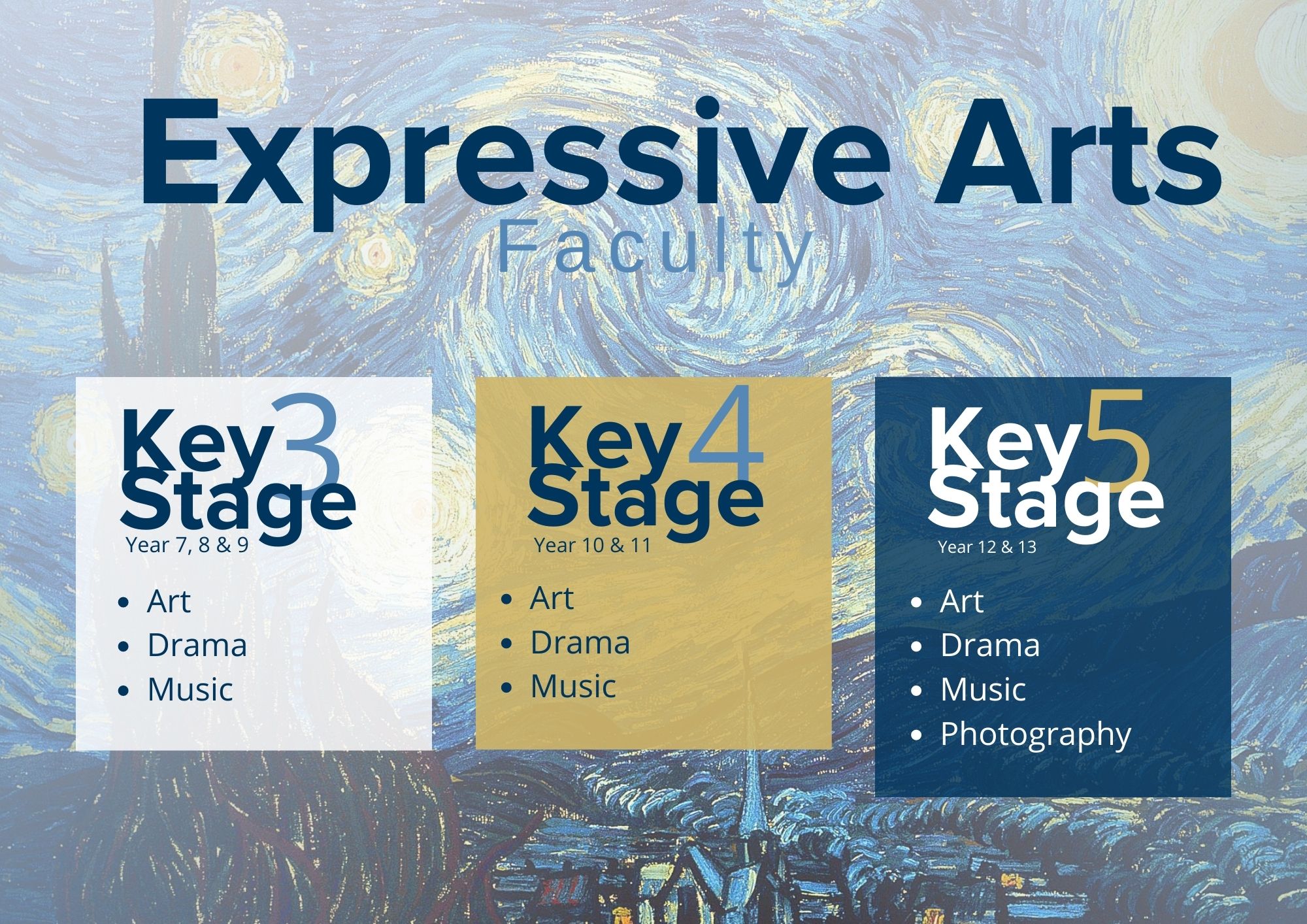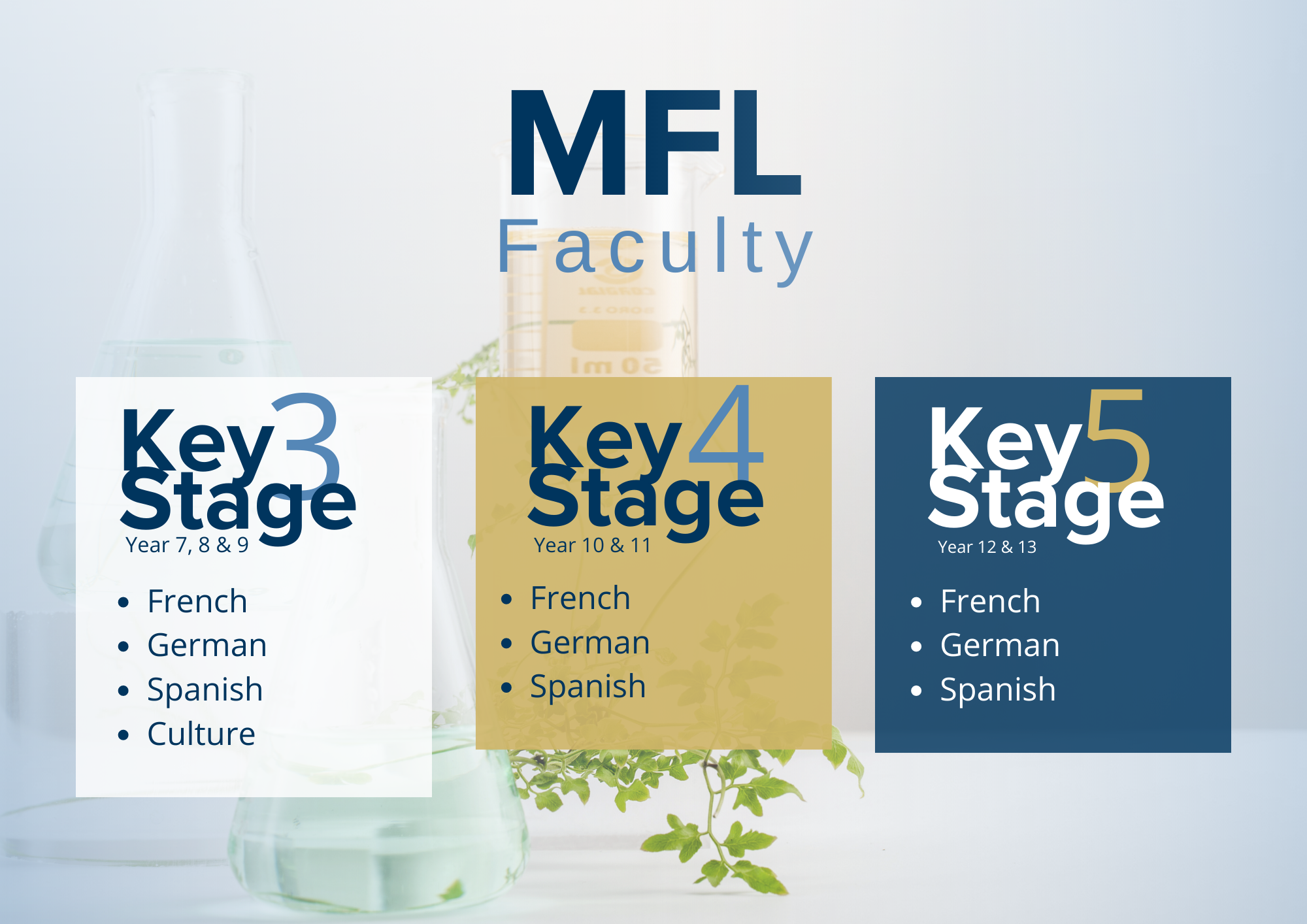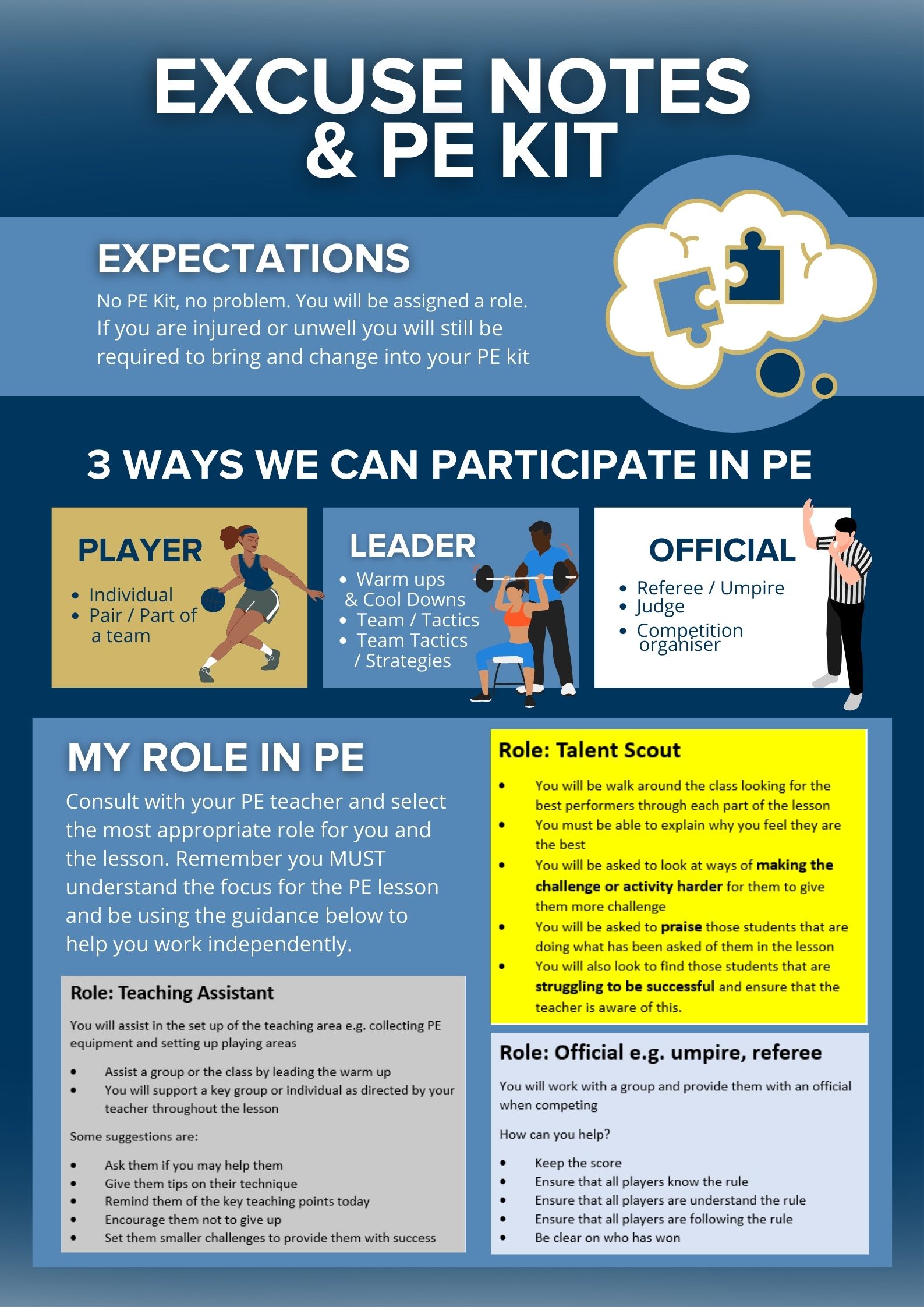Curriculum
We place emphasis on good teaching in a broad and balanced curriculum, underpinned by an effective approach to the social, moral, spiritual and cultural development of children and young people, to help to prepare them for life in modern Britain.
If you require more information about any aspect of our curriculum, please contact the relevant faculty leader.
Our Curriculum Statement
We define the curriculum as everything which happens in school and are committed to building character, resilience and creativity and developing RESPECT, ensuring that reading sits at its heart; everything which is taught and learned by the young people who attend our school. In that sense, it is not just about the knowledge and skills delivered in lessons but also the vast array of opportunities and experiences we offer to our students outside the classroom through the curriculum plus programme: participation in co-curricular provision, going on school trips and visits, participating in Sport, performing in plays and musicals, taking on specific leadership, volunteering and membership roles, and other types of involvement in the broader life of the school and the community which it serves.
All curriculum subjects along with the vertical tutoring system, share the responsibility of developing students as learners ensuring literacy/oracy and numeracy skills are developed in line with expectations, and preparing them for the world of work and/or further training.
Our Curriculum is built on the 3 tiers of Respect, Knowledge and Enrichment ensuring that reading sits at its heart. We place emphasis on good teaching in a broad and balanced curriculum, underpinned by an effective approach to the social, moral, spiritual and cultural development of children and young people, to help to prepare them for life in modern Britain.
Our teaching and learning priorities predominantly focus upon the development of reading, writing, and speaking skills for all students, delivered through quality first teaching, supported a targeted programme of CPD. In support of this, all teachers are expected to uphold the Tupton Hall Professional Practice and Learning Fundamentals, which ensures key elements of quality first teaching are utilised, in all lessons. In addition, the Tupton Hall Professional Practice and Learning Fundamentals puts the EEF 5-a-day approach at the heart of our day-to-day practice, enabling teachers develop a “repertoire of strategies which they can use daily and flexibly in response to individual needs” (EEF 2021), benefitting all students, not just those with SEN.
Our aim is to provide a wide reading culture for all students, ensuring that our school is a place where reading is valued, promoted and actively encouraged. A core reading curriculum is provided for all KS3 students via the DEAR Time and Accelerated Reading programmes, with bespoke support provided for those students who are not yet able to read at their chronological age. At KS4 and KS5 students are supported to develop their subject specific reading abilities, deepening their knowledge and understanding of the subjects being studied.
All students are supported to develop their oracy skills, via targeted curriculum programmes, high quality teacher questioning or the use of modelled language. All such approaches are threaded throughout the curriculum and span all year groups.
Written communication is highly supported and developed in all curriculum areas. All students are challenged to read, speak and write to the highest ability possible. Through effective teacher support, modelled responses and regular personlised feedback, students are supported to grow and develop their written responses to key learning material and formally assessment pieces.
The Curriculum for Years 7, 8 and 9 allows students to experience a range of subjects and to prepare for their GCSEs as well as develop key learning skills, experience a full range of subjects and co-curricular opportunities to develop character. As GCSE subjects have become more challenging for students, Year 9 has been developed into a “transitional year”, meaning students continue to develop their key learning skills through topic based learning but also start their GCSE subjects. We have developed a “Period 6” slot after the school day which will allow for a range of additional co-curricular activities and for additional work/revision, after the end of the traditional school day.
Teaching is organised around half year groups, most subjects are taught in mixed ability groups in Years 7 and 8; in Maths and English there is setting from Year 7, PE and DT operate a broad banding arrangement.
In Years 9, 10 and 11 there is a wide variety of GCSE subjects available.
Over the last three years the school has encouraged the majority of students to follow an EBacc curriculum route. Year 8 students who are achieving well in Modern Foreign Languages are expected to continue with a language at GSCE. We offer French, German and Spanish at GCSE. All students are expected to choose either History or Geography and one further choice from a wide variety of practical, technical and ‘new start’ subjects. There are plans to increase the number of vocational qualifications as part of our wider curricular offer.
For a very small number of students there bespoke curriculum pathways.
Our RESPECT agenda is at the core of our curriculum - all students follow a PSHE (Life skills and Wellbeing) programme that focuses on personal, social and emotional education, religious education and preparation for life beyond school. We are committed to ensuring students build cultural capital through this programme and embrace diversity, equity, and inclusion with specific focus on the progress of, and curriculum accessibility for, disadvantaged and SEND students. Life Skills and Wellbeing (PSHE) Education is taught across school through a variety of ways by all our teaching staff, such as dedicated lessons, assemblies, specific themed weeks and Impact Days. Our curriculum aims to provide students with;
- A sound understanding of their role as a citizen for now and in the future,
- Promote the representation and participation of different groups of individuals,
- The opportunity to consider wider societal and personal issues and
- The ability to develop critical thinking to make safe and informed decisions.
In line with the Government’s Personal, Social, Health and Economic (PSHE) Education Guidance, Tupton Hall has committed to developing students’ awareness in 3 key areas, including;
• Health & Wellbeing
• Relationships and Sexual Health Education
• The Wider World, Careers and British Values
Underpinning all this, we encourage students to take part in student voice, trips, workshops, fundraising and activities to support the schools 'Respect' agenda.
The curriculum is designed to build character through the ENRICH programme - a range of extracurricular activities, including inter-house competition, across all areas of the school, including sports, the expressive arts, design technology, science and modern foreign languages. Activities take place at lunchtime and after school and are open to all students and provide a wide range of experiences that many students get involved in.
In Years 12 and 13, we offer a very wide range of A Level subjects, Maths and English resit clinics and a variety of curriculum enrichment activities such as Community Sports Leadership Award, Higher Sports Leadership Award and the Finance Certificate qualifications. There are also a huge number of additional enrichment activities extra to the curriculum such as buddy reading, in lesson support, work experience and mentoring opportunities that sixth form students can become involved in.
Our sixth form curriculum is revised every year to ensure that it meets the needs of students. In recent years several subjects have been added to the offer, including: Modern Foreign Languages, Ethics & Philosophy, Computer Science, Environmental Science, Extended Project Qualification, Core Maths, Financial Studies and Photography.
We also offer students the option to re-sit both English and Maths at GCSE, if they have not yet achieved a Grade 4. This option includes a November and Summer exam entry and the opportunity to attend either timetabled lessons, lower school lessons or study via the curriculum enhancement model
There is ongoing evaluation of curriculum structures by the Senior Leadership Team and Governors.
Year 9 Options
At Tupton Hall School we give students two years to study towards their GCSE qualifications.
In Year 9, we ask students to choose their GCSE subjects. We offer lots of guidance for students and their parents to help with these big decisions.
Year 9 Options Booklet
We give each student a comprehensive guide to the Options process, the subjects they can study and how to choose their options.
Year 9 Options 2024 by Derbyshire AcademiesOptions Subjects - virtual assemblies
Watch these video assemblies, or download the PDFs, to discover more about each GCSE option subject. Each subject presentation broadly covers:
- Why study this subject?
- What does the course involve?
- What skills will I learn?
- Where could this subject take me?
Videos
- VIDEOS: Options Subjects Virtual Assemblies (YouTube Playlist)
Subject choices online tool
Use this online tool to discover jobs that might suit you based on your subject choices.
Enter up to six school subjects.
Literacy Support
At Tupton Hall School, we recognise the importance of reading and the correlation between reading competency and academic success. We want our students to enjoy reading, to reach for a book when they need an escape and find solace in literature. Reading helps reduce anxiety, stress and other mental health issues and allows readers to feel relaxed and content. As such, we aim to instil a love of reading in our students.
For helpful tips on getting your child into reading:
Reading Culture V2 by Derbyshire AcademiesWe improve students' reading skills in a variety of ways:
- Our fantastic library is the perfect place to dive into a novel, filled with a massive variety of books and other fantastic resources.
- We incorporate time for reading into the school timetable on a daily basis during 'DEAR time' (Drop Everything and Read!)
- All Year 7 and 8 students have an Accelerated Reader lesson in the library each week, where they have the opportunity to read and change their books. To read our accelerated reading letter to parents, please click here.
- Students identified as needing a bit more support are placed on one of our intervention pathways where they are given the opportunity to read a range of exciting texts suitable for their reading ability.
- Challenge time sees some Year 7 and 8 students enjoying Buddy Reading sessions in the library, reading aloud to staff and older students.
- Some students even receive 1:1 support from our Academic Mentors who 'champion' our students to reading success.
- We encourage our students to participate in 'Read for Good', which is a sponsored read that encourages students to read as much as possible while raising money for books for children in hospital.
Literacy is not just about reading. It is about the ability to communicate successful when writing and speaking. As a result, the school also aims to promote good communication skills in a variety of ways:
- The Big Write initiative means that Key Stage 3 students complete longer written pieces in all subject areas.
- All lessons have a key word that is shared with students.
- Students are encouraged to increase their vocabulary further with word of the week.
- Key subject spellings are displayed on the screens around school during breaks and lunch.
- All Year 7 students take part in a poetry reading competition. Finalists deliver their poem in front of the whole year group.
- Students lucky enough to be selected are given the opportunity to take part in Trust-wide events, such as the Big Reading Quiz and a Dreadlock Alien event.
Please visit our Virtual Bookshelf below. The shelf displays books recommended by Redhill Academy Trusts' Reading List.
For optimal viewing of the Virtual Bookshelf, please download by clicking here and viewing on a desktop device.
Click the novel you find interesting to learn more!
Curriculum Maps:
Navigate our curriculum maps by clicking below:
Curriculum Structure
Read about the structure of the curriculum below:
Years 7, 8 and 9
The Curriculum for Years 7, 8 and 9 has been fully re-designed to allow students to experience a range of subjects and to prepare for their GCSEs as well as develop key learning skills, experience a full range of subjects and extra-curricular opportunities to develop character. As GCSE subjects have become more challenging for students, Year 9 has been developed into a “transitional year”, meaning students continue to develop their key learning skills through topic-based learning but also start their GCSE subjects.
We have developed a “Deepening Learning” slot after the school day, which will allow for a range of additional extra-curricular activities and for additional work/revision, after the end of the traditional school day.
Teaching is organised around half year groups, most subjects are taught in mixed ability groups in Years 7 and 8; in Maths and English there is setting from Year 7, PE and DT operate a broad banding arrangement.
Years 10 and 11
In Years 10 & 11 there is a wide variety of GCSE subjects available.
Over the last three years, the school has encouraged the majority of students to follow an English Baccalaureate (EBacc) curriculum route. Year 8 students who are achieving well in Modern Foreign Languages are expected to continue with a language at GSCE. We offer French, German and Spanish at GCSE. All students are expected to choose either History or Geography and one further choice from a wide variety of practical, technical and ‘new start’ subjects. There are three vocational options in Design and Technology - Hospitality & Catering, Health and Social Care and Materials Technology as part of our wider curricular offer.
For a very small number of students there is bespoke off-site alternative provision. All students follow a PSHE programme that focuses on personal, social and emotional education, religious education and preparation for life beyond school.
The curriculum is designed to build character through a range of extracurricular activities, including inter-house competition, across all areas of the school, including sports, the expressive arts, design technology, science and modern foreign languages. Activities take place at lunchtime and are open to all students. They provide a wide range of experiences that many students get involved in.
Years 12 and 13
In Years 12 and 13, we offer a very wide range of A Level subjects, Maths and English re-sit clinics and a variety of curriculum enrichment activities such as Community Sports Leadership Award, Higher Sports Leadership Award and the Finance Certificate qualifications. There are also a huge number of additional enrichment activities extra to the curriculum such as buddy reading, in-lesson support, work experience and mentoring opportunities that sixth form students can become involved in.
There is ongoing evaluation of curriculum structures by the Senior Leadership Team and Governors. The Governors' Students and Standards Committee works closely with the Leadership Team to monitor, review and evaluate the curriculum offer on a yearly basis.
English
What's on offer for each key stage?
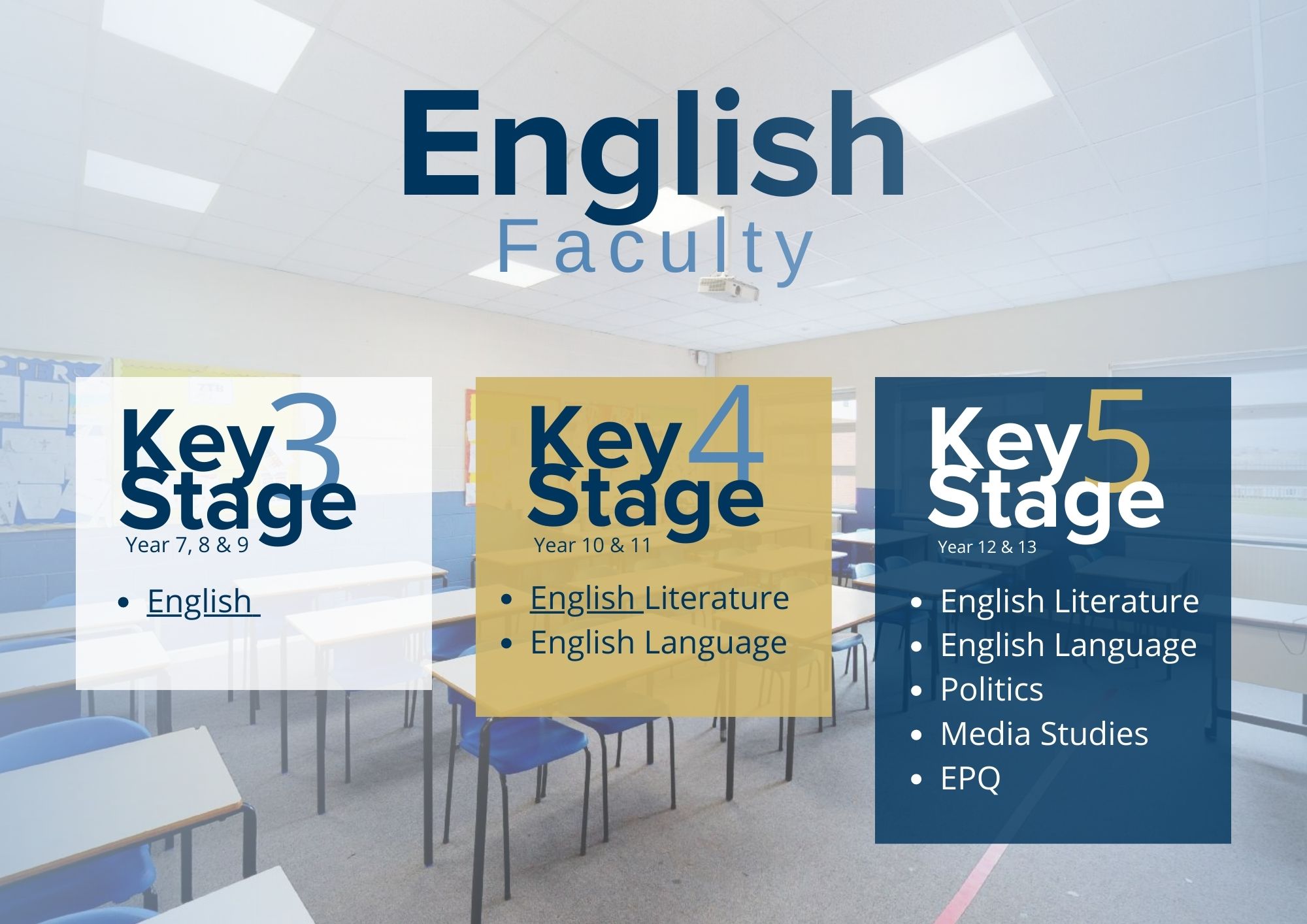
Maths
What's on offer for each Key Stage?
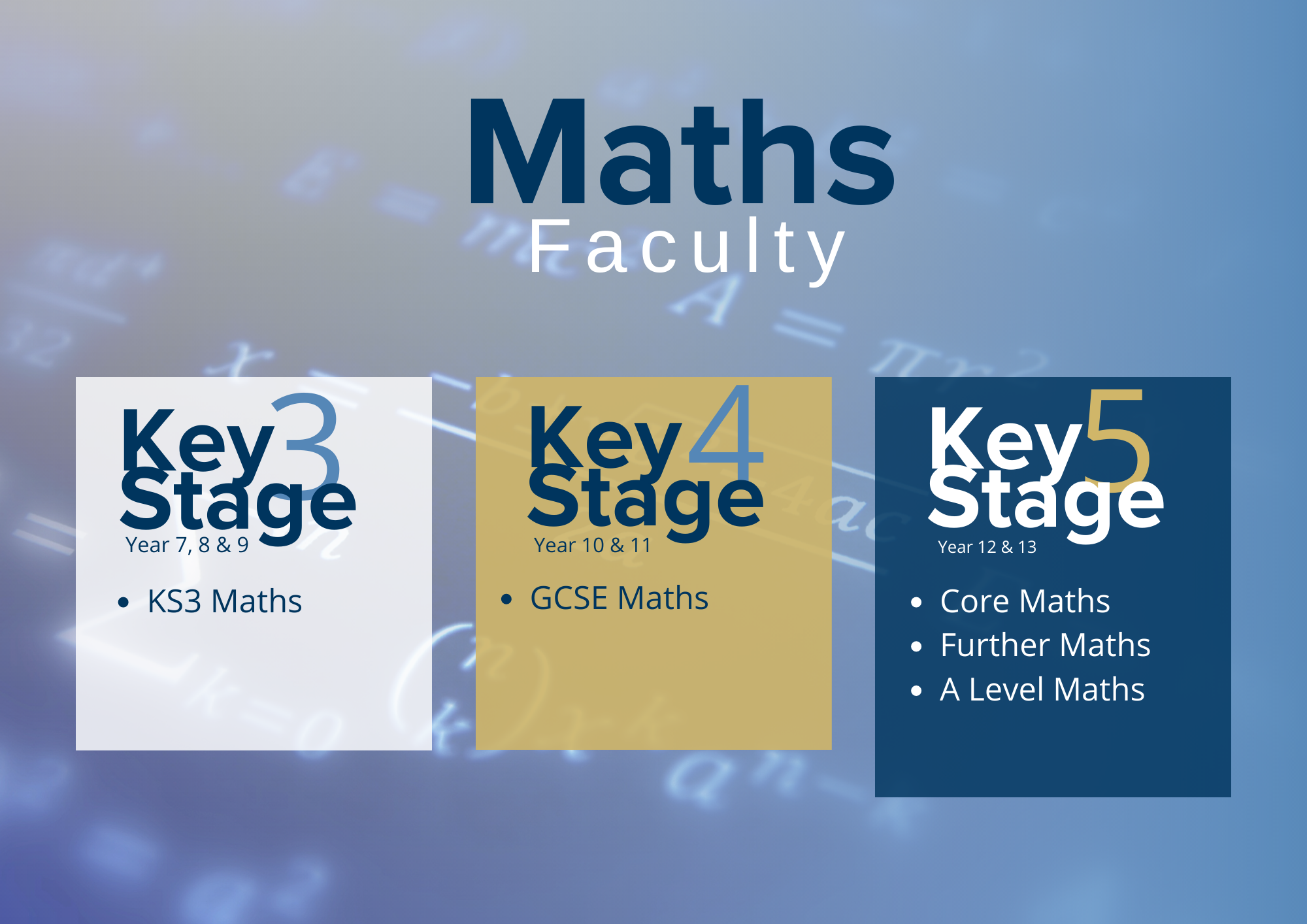
Curriculum Maps
Science
What's on offer for each key stage?
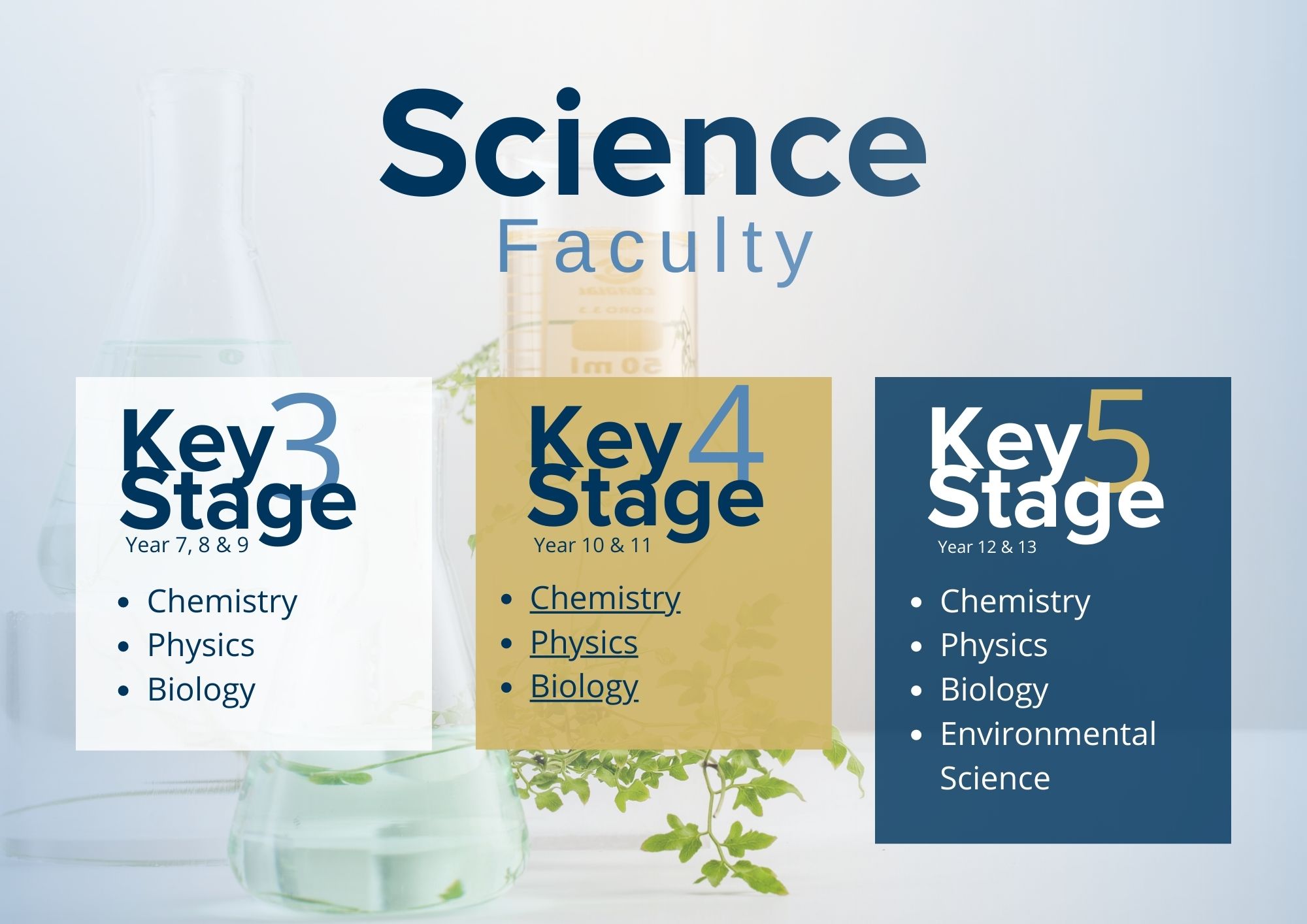
Curriculum Maps
Social Sciences
What's on offer for each key stage?
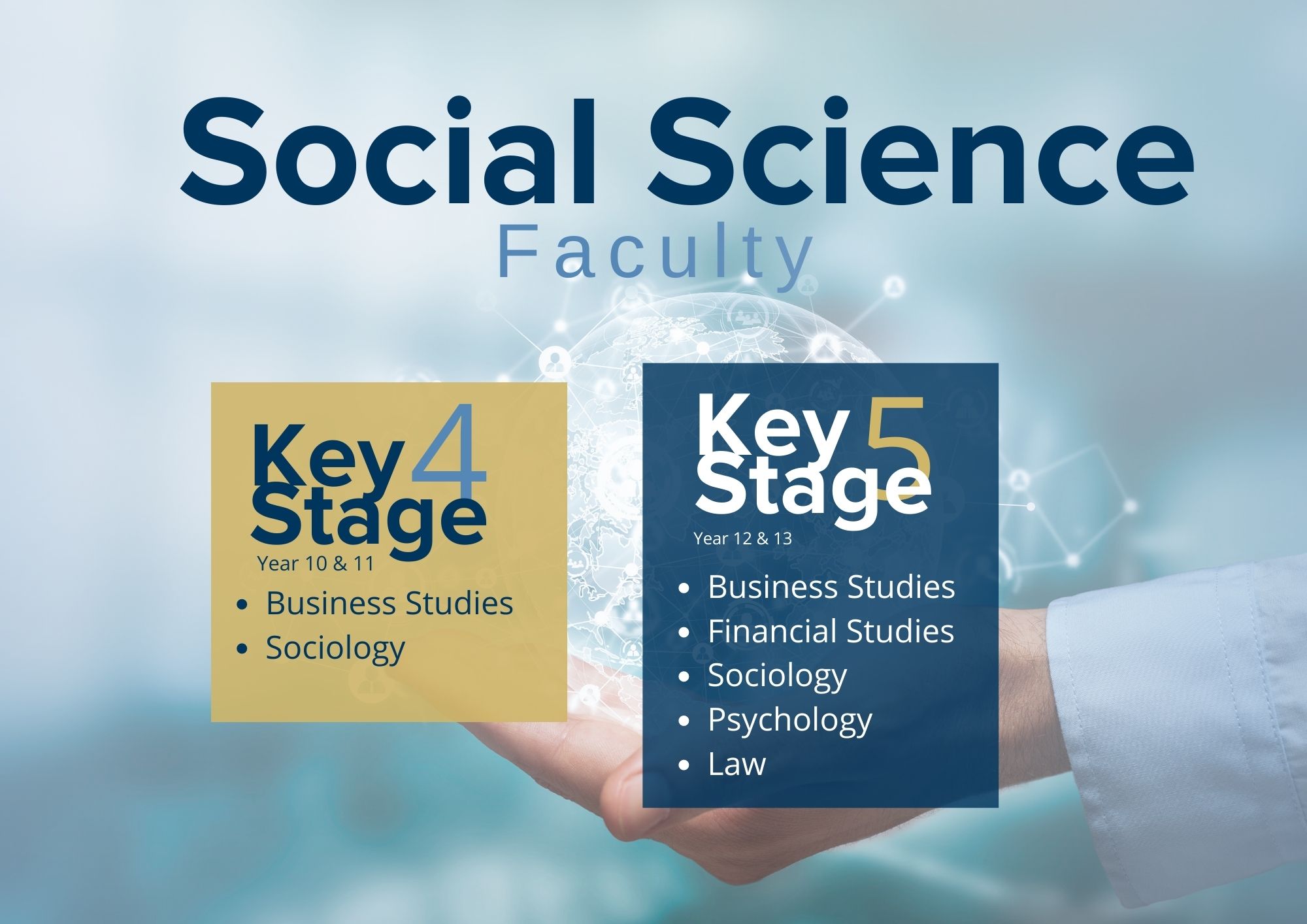
Curriculum Maps
Humanities
What's on offer for each key stage?
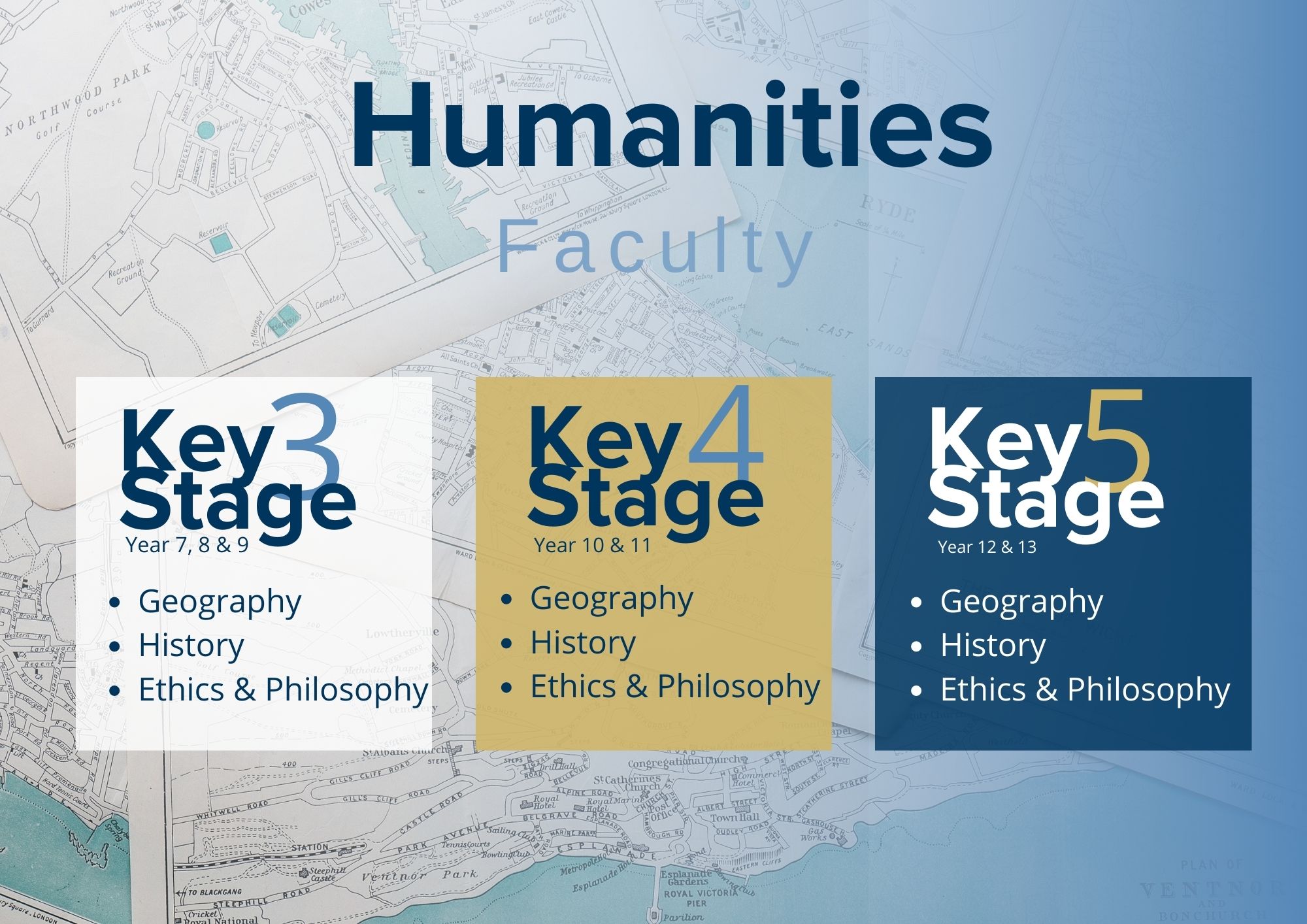
Curriculum Maps
Expressive Arts
Technology
What's on offer for each key stage?
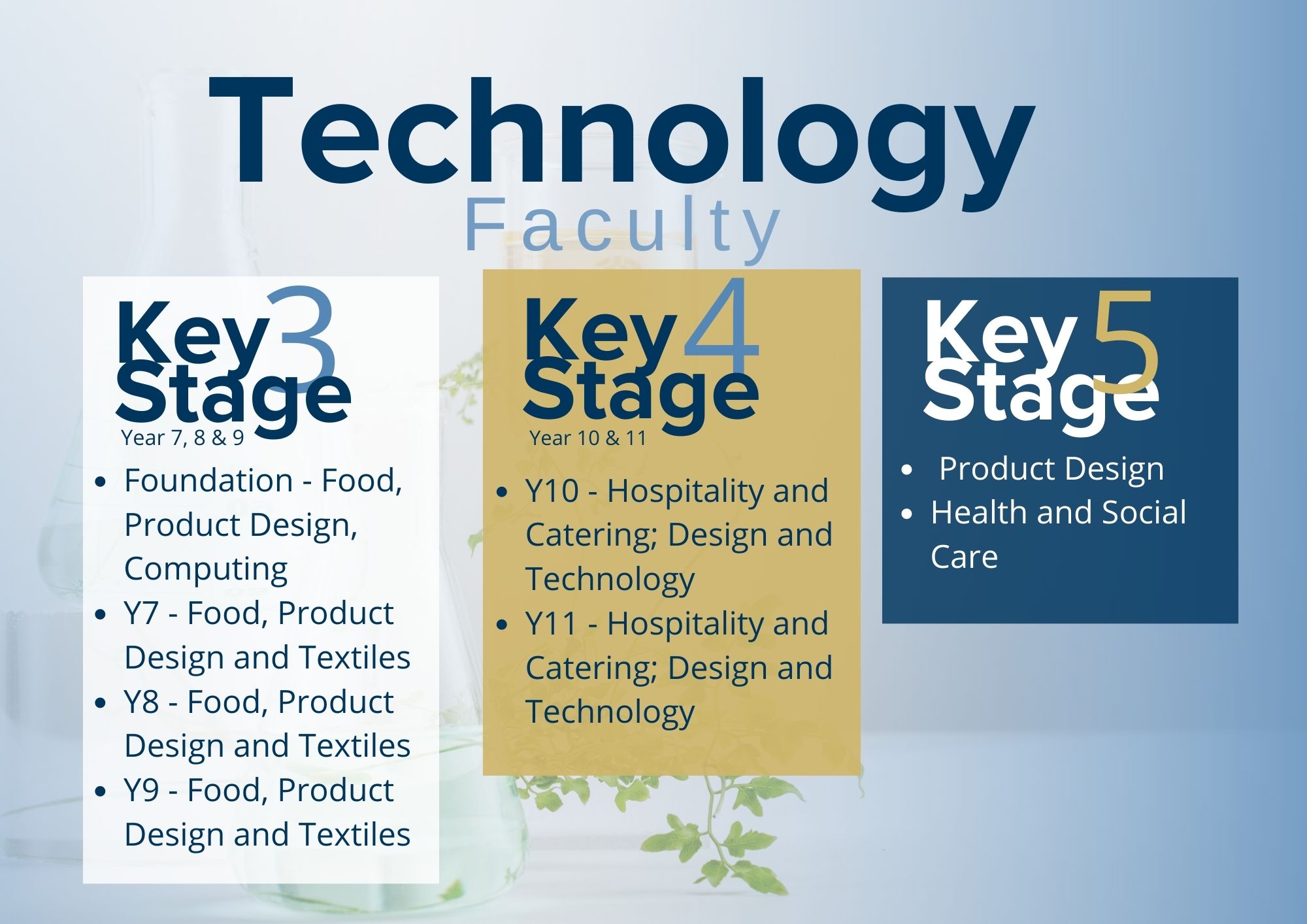
Physical Education



